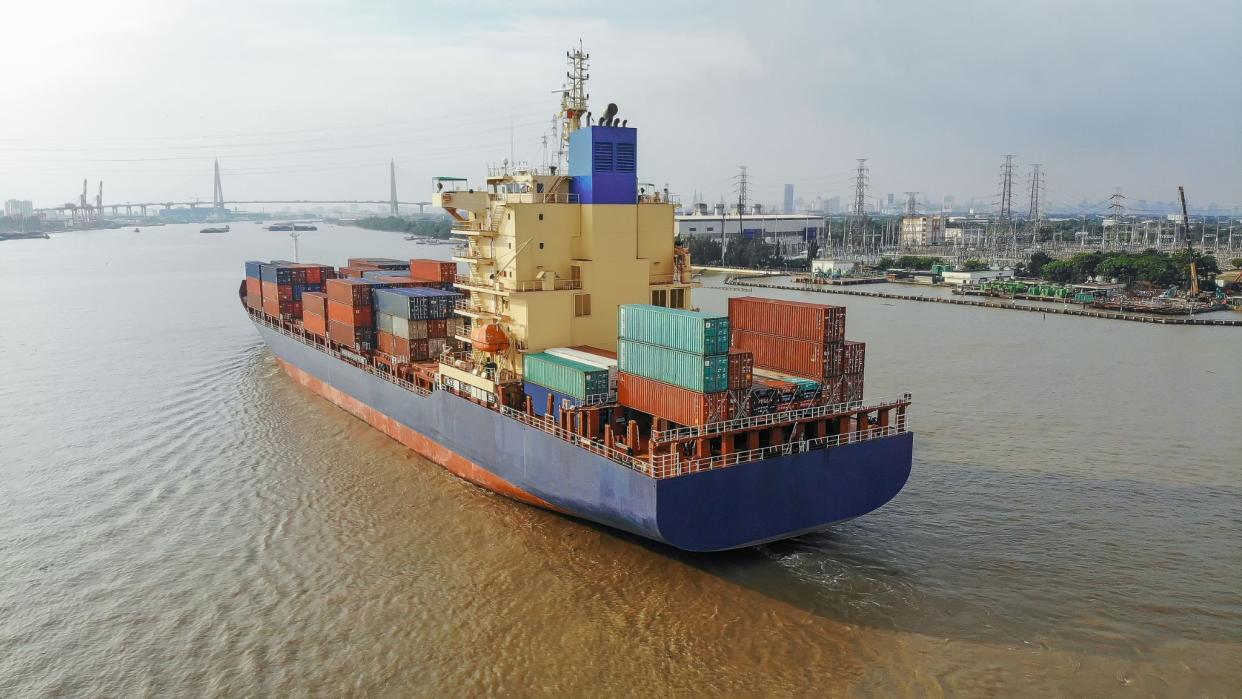The maritime choke points threatening supply chains across the world

Houthi attacks in the Red Sea have exposed vulnerabilities in key maritime routes that if exploited could have "severe global consequences", experts say.
The dangers for shipping in the Red Sea region have "increased dramatically" in recent weeks, said the BBC, as Iranian-backed Houthi fighters target commercial shipping with drone and missile attacks, as well as launching "more brazen assaults" by boat and helicopter. The attacks represent "one of the biggest challenges commercial shipping has faced in a very long time", said Chris Farrell, a ship protection officer who has led on-board security teams in the region.
Some ships are being rerouted, while others are hiring more security guards, or disabling their tracking equipment to make it harder for Houthi forces to locate them.
But the Red Sea is not the only potential choke point for global transport and shipping.
What is a maritime choke point?
These choke points are "narrow parts of main trade lanes", usually "straits or canals", explained supply chain academics Sarah Schiffling and Matthew Tickle on The Conversation.
The "geopolitical weaponisation of supply chains" is increasingly becoming a part of "economic statecraft", the duo wrote, and the Houthi attacks in the Red Sea have shown that "disrupting global trade at one of these choke points does not require huge military power".
Several other key choke points across the globe present similar problems. While about 12% of global trade passes through the Suez Canal, which connects the Mediterranean Sea to the Red Sea, more than twice as much passes through the Malacca Strait, which connects the Pacific Ocean to the Indian Ocean.
The Panama Canal, connecting the Atlantic and Pacific, and "even the South China Sea" are also "vital waterways that could upend the global shipping industry if blocked", said Morning Brew. Targeting these chokepoints is a "no-brainer for bad actors", since they are "geographically small and valuable targets".
What happens when a choke point is blocked?
The short answer is that carriers tend to reroute their ships, often at great expense.
"Hundreds" of cargo ships and tankers are already making a "lengthy detour" around the southern tip of Africa instead of passing through the Red Sea and the Suez Canal when travelling between Asia and Europe, science journalist Chris Baraniuk wrote for the BBC.
All this rerouting of huge cargo ships "comes with serious financial and environmental consequences", he added, amid reports of increased costs that are likely to be passed on to consumers.
And experts are warning that the Red Sea crisis is unlikely to be resolved any time soon. "You're certainly talking about months," said Eddie Anderson, a professor in supply chain management at Imperial College. "I don't imagine it's going to be years, but who can say."
The scale of the threat
War is not the only threat to maritime transport. The Panama Canal is experiencing low water levels due to unseasonably dry weather, which limits the number of vessels that can travel through.
So desperate are shipping companies to get vessels through that some are reportedly paying "seven-figure sums" for access, said The Interpreter. Inevitably, these costs are "passed down the supply chain".
A "multitude of other disasters" can also hit maritime transport, said Malaysian newspaper The Star. The South China Sea and Malacca Strait, for example, are particularly susceptible to "earthquakes and their resultant tsunamis; typhoons, which are common to the region; chemical spills and nuclear accidents that force ships to change course; or forest fires sending plumes of thick smoke across the waters, impacting navigation".
As the Israel-Hamas war continues, experts fear that further maritime choke points may also be threatened by the Houthis, who claim to be targeting vessels with connections to Israel. Earlier this month, the Organisation for Economic Co-operation and Development (OECD) predicted a "horrible and inevitable progression that could see the situation in the Red Sea spread to the strait of Hormuz".
Yet any such attacks are unlikely to go unanswered, said Schiffling and Tickle on The Conversation. The US military response to Houthi attacks in the Red Sea was "aptly called" Operation Prosperity Guardian.
And the involvement of Germany, South Korea, Denmark, Australia and Canada in the US operation can "also be understood as a signal" that many countries around the world are "ready to defend other choke points".

